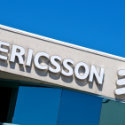
Chinese officials have raided Ericsson's offices in Beijing following complaints about the licensing fees Ericsson charges phone makers for use of its intellectual property.
Officials from China's State Administration for Market Regulation (SAMR) have launched an investigation into the Swedish vendor after complaints were made about its licensing activities, Ericsson confirmed to Light Reading in a statement.
"Ericsson can confirm that the Chinese SAMR has formally initiated an investigation due to complaints against Ericsson's IPR [intellectual property rights] practises in China," said Ericsson in emailed comments. "Ericsson is fully cooperating with the investigation and will refrain from further comments while it is ongoing."
The confirmation follows a report from the Wall Street Journal (WSJ) indicating that 20 SAMR officials raided Ericsson's Beijing offices on Friday April 12.
While Ericsson will not divulge further details at this stage, the WSJ cites Chinese media reports that suggest licensing fees paid to Ericsson will rise with the introduction of 5G technology. A report from the People's Posts and Telecommunications News said Ericsson was likely to add 5G royalties on top of licensing charges for older 4G and 3G technologies, driving up the overall cost to phone makers.
Posts and Telecommunications News is said to be the official newspaper of China's Ministry of Industry and Information Technology, which is responsible for telecom regulations in China.
Ericsson is one of the world's biggest holders of the patents behind cellular technologies and is thought to generate about $1.5 billion annually in licensing fees, according to one source who preferred to remain anonymous.
Patents could be even more lucrative with the move to 5G technology -- not only because fees might get added to 3G and 4G charges but also because 5G technology may eventually be used in a much broader range of devices.
A sign of what may lie ahead came in March when Nokia, Ericsson's Finnish rival, clashed with German carmaker Daimler over the licensing of cellular technology used in automotive systems. Nokia reported €1.5 billion ($1.7 billion, at today's exchange rate) in revenues from patent and brand licensing last year.
Patents are a huge deal in China because it is home to many of the phone makers that must pay royalties to Ericsson and others. Huawei, one of China's biggest and most influential technology companies, is also in an unusual position as both a licensee and licensor of cellular technology: As a phone maker and major patents owner, its earnings would stand to benefit directly if it could charge more than other patents owners for its intellectual property.
Both Ericsson and Nokia exited the phone manufacturing business years ago and are today focused on developing network products (though Nokia still licenses its brand to third-party device manufacturers).
You're invited to attend Light Reading's Big 5G Event! Formerly the Big Communications Event and 5G North America, Big 5G is where telecom's brightest minds deliver the critical insight needed to piece together the 5G puzzle. We'll see you May 6-8 in Denver -- communications service providers get in free!
While there is no suggestion Huawei is behind the complaints made to Chinese authorities, it has recently taken an aggressive stance against other patent owners.
In December, Huawei sued cellular patents firm InterDigital, with headquarters in the US, alleging in the Shenzhen Intermediate People's Court that InterDigital had broken a promise to license mobile patents on FRAND (so-called fair, reasonable and non-discriminatory) terms.
In its statement on the latest developments, Ericsson said: "We license our industry-leading patent portfolio on FRAND terms and conditions and have always been committed to these FRAND principles."
Ericsson recently claimed to have 49,000 patents on its books, while Huawei boasted 87,805 in its recently published annual report for 2018. But neither company has indicated where these figures put them in percentage terms as owners of cellular technology.
A source close to the matter previously said there is an "unwritten understanding" within the 3GPP, the group that defines cellular specifications, that no one company will be allowed to dominate a standard.
Despite that, US politicians are said to be worried about China's growing muscle in 5G intellectual property. If 5G technology gives rise to many new types of device, then US manufacturers could end up paying the Chinese billions of dollars in annual licensing fees.
China's efforts to build the legal apparatus for patent litigation may be a further headache for Western companies. "China has recently set up some dedicated patent courts and is trying to establish itself as a country where you can litigate," said Pio Suh, the managing director of a cellular patents and advisory company called IPCom, during a previous conversation with Light Reading.
In December, a Chinese court was reported to have ordered a ban on some iPhone sales after US chipmaker Qualcomm accused Apple of patents violations.
Such measures could effectively lock manufacturers out of the world's biggest market for consumer devices.
Related posts:
— Iain Morris, International Editor, Light Reading
About the Author(s)
You May Also Like











